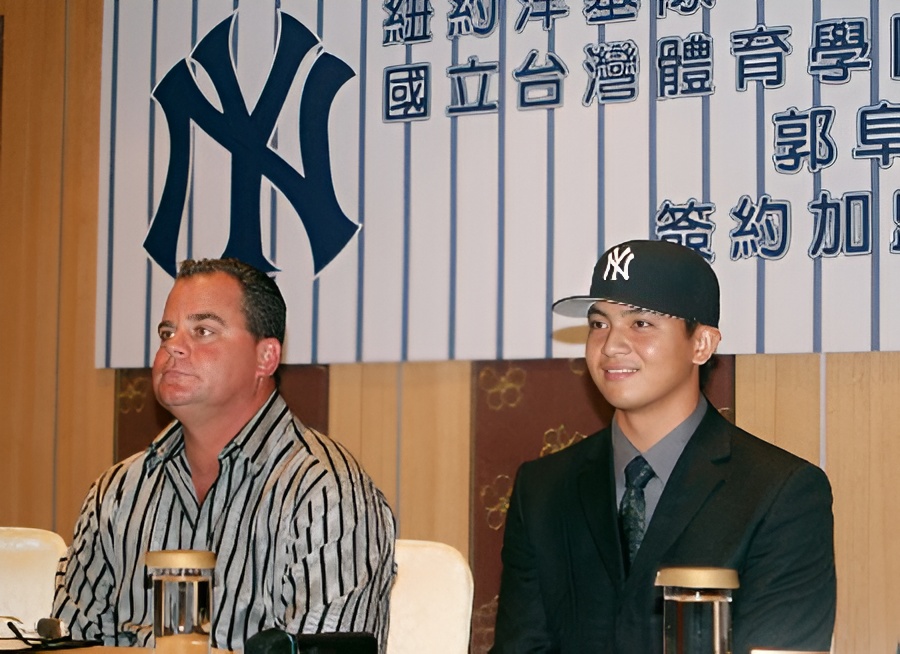“After years of heavy spending and light returns, the Yankees are rethinking how they scout the world’s next stars.”
The New York Yankees’ latest front-office move wasn’t about a player or a manager. It was about the people responsible for finding the next wave of talent. After more than a decade leading the club’s global scouting operations, Donny Rowland, the Yankees’ longtime Director of International Scouting, is out. His contract was not renewed following years of heavy spending and limited return, a clear signal that one of baseball’s richest franchises has grown impatient with “million-dollar misses” on the international market.
A once-golden pipeline gone quiet
For decades, the Yankees prided themselves on discovering gems across Latin America and Asia, often turning modest signings into stars who defined eras. Rowland’s tenure began with similar promise as the organization leaned on his deep network to secure elite teenage talent abroad. The global program was aggressive, sometimes extravagant, in its pursuit of future stars. But as rival teams modernized their analytics and player development systems, New York’s international edge began to dull.
In recent years, the Yankees spent tens of millions of dollars in signing bonuses for prospects expected to become cornerstones. The crown jewel was Jasson Domínguez, signed in 2019 for $5.1 million, nearly the club’s entire bonus pool that year. Dubbed “The Martian” for his out-of-this-world potential, Domínguez finally debuted in 2023 and showed flashes of brilliance before an elbow injury cut his rookie run short. Behind him came a wave of other high-priced signees: Roderick Arias ($4 million in 2022), Brando Mayea ($4.35 million in 2023), Manny Cedeño ($2.5 million in 2025), and Francisco Vilorio ($1.7 million in 2024).
Despite the volume and size of those deals, few have reached the majors, and fewer still have produced meaningful impact. In organizational terms, the Yankees’ conversion rate on top-dollar international prospects has lagged far behind competitors.
The cost of coming up empty
Industry observers estimate the Yankees have invested more than $25 million in international bonuses over the past several signing periods, yet Domínguez remains the lone breakout. “When your biggest checks aren’t turning into big-league contributors, that’s not a sustainable pipeline,” said one American League scout familiar with the team’s structure. “The Yankees haven’t lacked effort. They’ve lacked development traction.”
Comparisons only heighten the contrast. The Los Angeles Dodgers have turned international signings into an assembly line of talent, while the Atlanta Braves built championship rosters around international discoveries like Ronald Acuña Jr. and Ozzie Albies. Even the San Diego Padres, known for their aggressive approach, have parlayed similar spending into a deeper pool of near-ready prospects. By contrast, the Yankees’ recent international classes have been long on hype and short on results, a fact not lost on the front office after consecutive October exits.
A shift in global strategy
Rowland’s exit is both symbolic and strategic. While official language labeled it a “non-renewal,” the decision marks a philosophical reset for a franchise increasingly intent on aligning scouting with performance analytics. Sources around the league describe the Yankees’ international program as traditional in structure but lagging in modern data integration and player tracking, areas that rival teams have fully embraced. The expectation is that New York will pivot toward a hybrid model that blends boots-on-the-ground scouting with digital evaluation metrics and biomechanical data to reduce risk and improve developmental precision.
The timing also fits a broader pattern. General manager Brian Cashman, under pressure after another disappointing postseason, has promised internal audits “across every department.” Reassessing international scouting, an expensive and uncertain enterprise, was inevitable. The Yankees can afford to spend big, but their ownership has made clear that every dollar must start producing results again.
What comes next
In fairness, Rowland’s record isn’t without success. His program helped identify players who became trade assets or organizational depth. But in an era where data and development are inseparable, the Yankees’ international track record has fallen short of their reputation and their budget.
The move to replace Rowland underscores the Yankees’ urgency to restore faith in a system that has, at times, chased promise over polish. With a new scouting leader expected to be named this winter, the Yankees are likely to pursue a structure that mirrors modern player-acquisition powerhouses, less reliant on instinct and more grounded in predictive modeling and developmental analytics.
Still, the international market remains a gamble. Teenagers signed at 16 rarely reach the majors before 22 or 23, and even the best programs miss more than they hit. But for the Yankees, whose brand is built on winning and whose payroll leaves no excuse for inefficiency, patience has limits. Rowland’s departure doesn’t close the door on international scouting; it simply marks the beginning of a new era, one where big bets must finally pay off.
Source(s): MLB insider Francys Romero was the first to report the the Yankees decision on Rowland. The Athletic’s Brendan Kuty confirmed that Donny Rowland had been fired by the Yankees.

